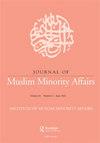伊斯兰教法、法律多元主义与穆斯林属人法:来自印度马拉巴尔马哈鲁制度的民族志教训
IF 0.4
0 RELIGION
引用次数: 0
摘要
当代公众以及学术话语对属人法在印度多年来一直从事其不足,司法化和统一的问题。这种论述很少关注法律的功能和致力于政治世俗主义思想的多元文化民族国家的复杂性。本文研究了马拉巴尔的马哈鲁制度,并阐明了穆斯林属人法中的决策是如何嵌入日常微观政治、宗派动态、社会谴责和影响的过程。通过追踪一个三重塔拉克案件的人种学细节,我们表明,爱(或缺乏爱)、亲属期望和社区权威一起解决了一场婚姻纠纷,这场纠纷不会导致法律解释的直接路径,而是进入了当地宗教派别和权威的微观政治迷宫。本文认为,马哈鲁制度下的非国家准法律制度是一种特殊的法律多元主义,它是复杂的,充满了多层次的权力关系。这也将二元对立和合法与合法之间的博弈带到了前台。本文章由计算机程序翻译,如有差异,请以英文原文为准。
Sharia, Legal Pluralism and Muslim Personal Law: Ethnographic Lessons from the Mahallu System of Malabar, India
Abstract Contemporary public as well as academic discourse on personal law in India has over the years engaged with the issues of its inadequacies, judicialisation and uniformity. This discourse has paid scant attention to the functioning of the law and the complexities of a multicultural nation-state committed to the idea of political secularism. This paper engages with the mahallu system of Malabar and sheds light on how decision-making in Muslim personal law is a process embedded in quotidian micro-politics, sectarian dynamics, social censure and affect. By tracing a triple talaq case in its ethnographic details we show that love (or lack of it), kinship expectations and community authority come together in resolving a conjugal dispute that does not lead to a straight path of legal interpretation but into a labyrinth of micro-politics of local religious factions and authority. The paper shows that the non-state quasi-legal institutions that come under the rubric of the mahallu system comprise of a particular kind of legal pluralism which is complex and replete with multilayered relations of power. This also brings to fore the binary and the play between what is considered to be legal and legitimate.
求助全文
通过发布文献求助,成功后即可免费获取论文全文。
去求助
来源期刊

Journal of Muslim Minority Affairs
RELIGION-
CiteScore
1.40
自引率
0.00%
发文量
31
期刊介绍:
Journal of Muslim Minority Affairs is a peer reviewed research journal produced by the Institute of Muslim Minority Affairs (IMMA) as part of its publication programme. Published since 1979, the journalhas firmly established itself as a highly respected and widely acclaimed academic and scholarly publication providing accurate, reliable and objective information. Journal of Muslim Minority Affairs provides a forum for frank but responsible discussion of issues relating to the life of Muslims in non-Muslim societies. The journalhas become increasingly influential as the subject of Muslim minorities has acquired added significance. About 500 million Muslims, fully one third of the world Muslim population of 1.5 billion, live as minorities in 149 countries around the globe. Even as minorities they form significant communities within their countries of residence. What kind of life do they live? What are their social, political and economic problems? How do they perceive their strengths and weakness? What above all, is their future in Islam and in the communities of their residence? The journal explores these and similar questions from the Muslim and international point of view in a serious and responsible manner.
 求助内容:
求助内容: 应助结果提醒方式:
应助结果提醒方式:


